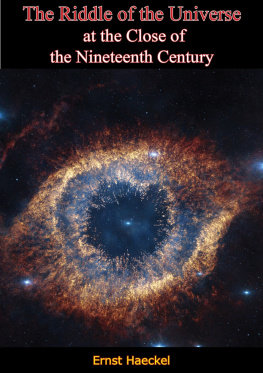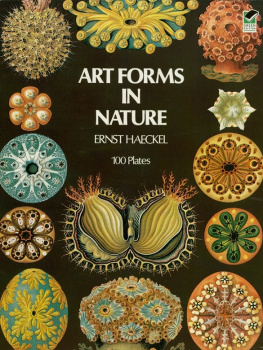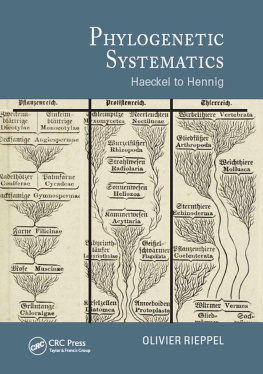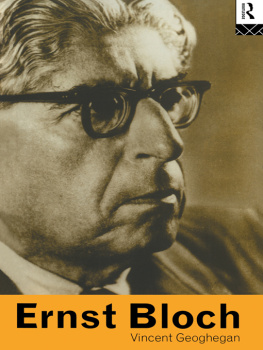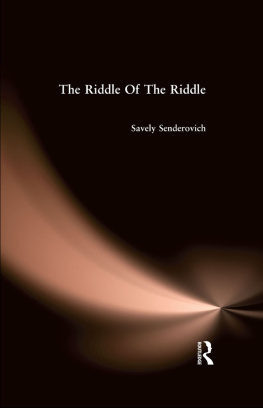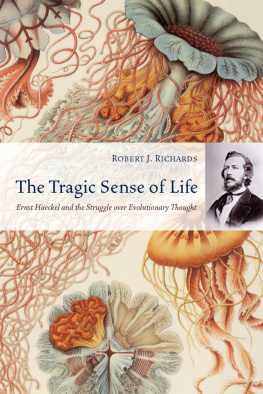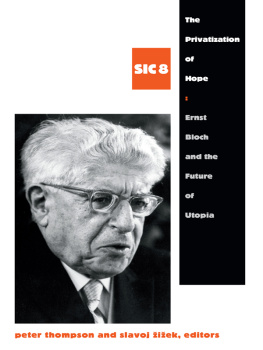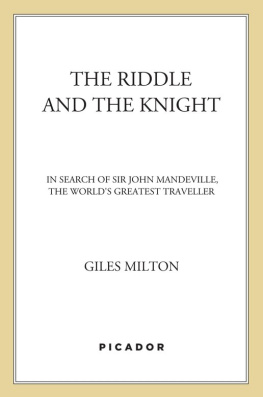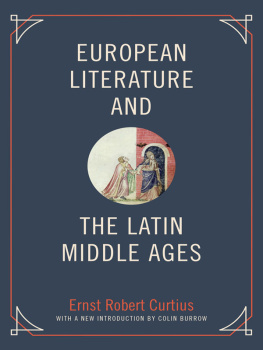Ernst Haeckel - The Riddle of the Universe at the Close of the Nineteenth Century
Here you can read online Ernst Haeckel - The Riddle of the Universe at the Close of the Nineteenth Century full text of the book (entire story) in english for free. Download pdf and epub, get meaning, cover and reviews about this ebook. year: 2017, publisher: Muriwai Books, genre: Science. Description of the work, (preface) as well as reviews are available. Best literature library LitArk.com created for fans of good reading and offers a wide selection of genres:
Romance novel
Science fiction
Adventure
Detective
Science
History
Home and family
Prose
Art
Politics
Computer
Non-fiction
Religion
Business
Children
Humor
Choose a favorite category and find really read worthwhile books. Enjoy immersion in the world of imagination, feel the emotions of the characters or learn something new for yourself, make an fascinating discovery.
- Book:The Riddle of the Universe at the Close of the Nineteenth Century
- Author:
- Publisher:Muriwai Books
- Genre:
- Year:2017
- Rating:3 / 5
- Favourites:Add to favourites
- Your mark:
- 60
- 1
- 2
- 3
- 4
- 5
The Riddle of the Universe at the Close of the Nineteenth Century: summary, description and annotation
We offer to read an annotation, description, summary or preface (depends on what the author of the book "The Riddle of the Universe at the Close of the Nineteenth Century" wrote himself). If you haven't found the necessary information about the book — write in the comments, we will try to find it.
The Riddle of the Universe at the Close of the Nineteenth Century — read online for free the complete book (whole text) full work
Below is the text of the book, divided by pages. System saving the place of the last page read, allows you to conveniently read the book "The Riddle of the Universe at the Close of the Nineteenth Century" online for free, without having to search again every time where you left off. Put a bookmark, and you can go to the page where you finished reading at any time.
Font size:
Interval:
Bookmark:


This edition is published by Muriwai Books www.pp-publishing.com
To join our mailing list for new titles or for issues with our books muriwaibooks@gmail.com
Or on Facebook
Text originally published in 1901 under the same title.
Muriwai Books 2017, all rights reserved. No part of this publication may be reproduced, stored in a retrieval system or transmitted by any means, electrical, mechanical or otherwise without the written permission of the copyright holder.
Publishers Note
Although in most cases we have retained the Authors original spelling and grammar to authentically reproduce the work of the Author and the original intent of such material, some additional notes and clarifications have been added for the modern readers benefit.
We have also made every effort to include all maps and illustrations of the original edition the limitations of formatting do not allow of including larger maps, we will upload as many of these maps as possible.
THE RIDDLE OF THE UNIVERSE
AT THE CLOSE OF THE NINETEENTH CENTURY
BY
ERNST HAECKEL
TRANSLATED BY JOSEPH MCCABE
SECOND EDITION
Contents
TOWARD the close of the eighteenth century a distinguished French thinker, Condorcet, pointed out that knowledge usually passes through three definite stages. Knowledge is mans interpretation of what he sees, his interpretation of visible nature; and, as each nation first emerges from the mists of prehistoric days, we find this interpretation of the world to be the charge of its priests. It was inevitable that they should conceive the world in harmony with their religious traditions. As it was mirrored in the young and nervous imagination of early man, the world was a bewildering kaleidoscope of colour and form, a chaos of disconnected movements. Somewhere beyond it, or below it, were the hidden forces that impelled and regulated it. The finger of God betrayed itself in every falling leaf and rushing stream. That was the age-long and world-wide theological stage of knowledge.
In Europe, at least, the theological stage is succeeded by the philosophical. In Greece schools of thought are opened apart from the temples. In the Middle Ages a few independent teachers gradually create centres of culture by the side of the episcopal and monastic schools. But the shadow of the temple or the cathedral lies over them, and their independence has limits. The martyr-fires of every great medival town light up their schools, at intervals, with their terrible glow. Philosophy takes the form of an attenuated theology. The philosophers turn in disdain from the colossal-man God of the clergy, their battlemented heaven, their repulsive hell, their collection of ancient myths. Nature is still the sphinx with her unanswerable riddle. Somewhere beyond, or below, the material frame is the working machinery. The thin shades of the old gods and spirits still hover about it.
Then the scientific era opens. The barriers to positive research are thrown down, the fetters of thought are angrily snapped. Point by point, patiently, laboriously, the great landscape of the universe is explored. Miracle gives place to law, disorder to order, gaps to continuity. The machinery of the universe is found in the universe. Neither the solid Gods of the Church nor the ethereal shades of the academy are heeded. I have done without that hypothesis, says Laplace. We have conducted God to the frontier, thanking him for his provisional services, says Caro. We claim and will wrest the whole cosmological domain from the theologian, says Tyndall. The claim has been practically conceded, says Dewar twenty years later.
This evolution of thought is the root of the conflict between science and theology. A generation or two ago the practice began in Europe of educating the mass of the people, and enabling them to take an intelligent interest in the development of culture. The first great fact to arrest the attention of awakened Demos was that theology, philosophy, and science were bitterly embattled over the interpretation of the world that had so long been imposed on him. For years the clergy tried to warn him, with dramatic maledictions, away from the field of controversy. Demos has conquered, and today he is assailed only with the plaintive defences and the tender wooing of the disputants. In the bewildering conflict of authorities he has no honest resource but to weigh the evidence and the criticisms of the various schools. A vast popular controversial literature is outspread before him.
Among this literature quite the most prominent place has been taken of late years, in every country in Europe, by the present work. An aged Professor, one of the most eminent and most thoughtful men of science in Europe (Fortnightly Review , September, 1901), decided to put in popular form his opinions of current theology. He had just received a unique testimonial from some 500 of the worlds scientists, and had been assured by the presenter of the testimonial that he had written his name in letters of light in the history of science. But, though the writer of forty scientific works and master of research in many branches, he had been equally interested throughout life in the theology which was purveyed to the mass of the people. It is one of the more gross misconceptions of Haeckels work that he merely flung a random dart at the Churches in some idle interval between his scientific achievements. He had been interested in the teaching of the Churches for fifty years, and he had conscientiously concluded that it was untrue and a hindrance to progress. A stern and uncompromising idealist all his life, he felt that he must make one more protest against the deception of the people by their popular preachers before he passed into eternal silence.
The result is known to Europe. With a rapidity that has amazed him, his gospel sped through Germany, France, England, Italy, Spain, Holland, Russia, Scandinavia, and several other countries. I have lectured on Haeckel or Haeckels teaching in the tiniest towns of Wales and Scotland, and found audiences that no other serious subject would have brought together. In the space of a year or two he received 5,000 letters of inquiry about his teaching. The most unscrupulous means were employed, in England and Germany, to arrest the circulation of the work, but it was fruitless. Last year a new and important history of philosophy was published at Berlin. Its author, Professor Gramzow, devoted a large section of it to Haeckel and his ideas, and concluded: The far-reaching stimulus that Haeckel has given will never more be lost . He has become a sower of the future. The glad echo that his words have found in a hundred thousand breasts should impel every representative of ruling power, in Church and State, to examine himself and his opinions more closely. Does not the thought press irresistibly on us that somehow or other we are on the wrong path of development?
That the work has provoked a number of replies is no less a matter of congratulation. Haeckel had no wish to substitute in the popular mind a dogmatism of science for the dogmatism of the Churches. In his preface he warns the reader more than once that his opinions are personal and of unequal value, and throughout the work he indicates that several distinguished men of science in Germany differ from him. Free and enlightened discussion of the great issues which religion raises was what he sought. Unfortunately, the majority of critics do not clearly meet him on the great issues. They forfeit our interest by wearisome word-splitting, long analyses of trivial details, attempts to dispute established points of science, and reckless vituperation of the distinguished scientist. I dealt, in my Haeckels Critics Answered , with a shoal of these smaller fry of the polemical world, and will not return to the points I there treated. Most of the dreary criticisms of Haeckel that have been penned, or fulminated from the pulpit, would not have been uttered if their authors had been sufficiently informed, or sufficiently candid, to say with Principal Lloyd-Morgan, his most serious opponent in this country: Professor Haeckels attitude is typical of the man, a truth-loving, frank, outspoken man, of great scientific eminence. I will not enter again into a discussion of the personality or the competence of Professor Haeckel. None but an ill-informed or a poor-minded opponent has ever questioned either. But it is opportune, on introducing this new issue of the Riddle , to glance at the more recent criticisms.
Next pageFont size:
Interval:
Bookmark:
Similar books «The Riddle of the Universe at the Close of the Nineteenth Century»
Look at similar books to The Riddle of the Universe at the Close of the Nineteenth Century. We have selected literature similar in name and meaning in the hope of providing readers with more options to find new, interesting, not yet read works.
Discussion, reviews of the book The Riddle of the Universe at the Close of the Nineteenth Century and just readers' own opinions. Leave your comments, write what you think about the work, its meaning or the main characters. Specify what exactly you liked and what you didn't like, and why you think so.

